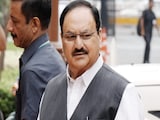A UK court ruling that jeweller Nirav Modi does have a case to answer before the Indian courts in relation the Punjab National Bank (PNB) scam case clears the legal pathway to the diamond merchant's extradition, with the Westminster Magistrates' Court judgment now making its way to the desk of British Home Secretary Priti Patel for a sign off.
India is a designated Part 2 country by virtue of the Extradition Act 2003, which means it is the Cabinet minister who has the authority to order a requested person's extradition after considering a number of further issues.
Under the provisions of the act, the Secretary of State must consider the possible imposition of the death penalty, in which case extradition cannot be ordered. The rule of specialty, which prohibits a person being dealt with in the requesting state for matters other than those referenced in the extradition request, and whether or not the person was in the UK following extradition from another state, in which case that states permission must be obtained before extraditing to a third state.
If these factors do not prevent extradition, the minister must order extradition within two months of the day on which the District Judge referred his decision to the Secretary of State, in this case by the end of April.
The Home Secretary's order rarely goes against the court's conclusions, as she has to consider only these very narrow bars to extradition which are unlikely to apply in Nirav Modi's case.
However, as witnessed in the extradition case of former Kingfisher Airlines chief Vijay Mallya -- who remains on bail in the UK while a "confidential" matter, believed to relate to an asylum request, is resolved -- there is still some way to go before Nirav Modi can be formally moved from Wandsworth Prison in London to Barrack 12 Arthur Road Jail in Mumbai and face trial in India.
The ministerial decision aside, the judge has informed Nirav Modi of his right to seek an appeal in the High Court and has up to 14 days to make that application after the Home Secretary has made her decision known. Any appeal, if granted, will be heard at the Administrative Division of the High Court in London.
It is also possible to appeal to the UK Supreme Court but this is only possible if the High Court certifies that the appeal involves a point of law of general public importance, and either the High Court or the Supreme Court gives leave for the appeal to be made.
Nirav Modi's legal team did not immediately confirm if he intends to appeal against Thursday's ruling in the High Court and he will remain behind bars at Wandsworth Prison on judicial remand until the next stage in the legal process.
Meanwhile, Indian-origin minister Priti Patel has a number of matters related to Indian economic offenders adding up -- with Vijay Mallya's case yet to be fully resolved and that of accused arms dealer Sanjay Bhandari set to begin in magistrates' court from April.















